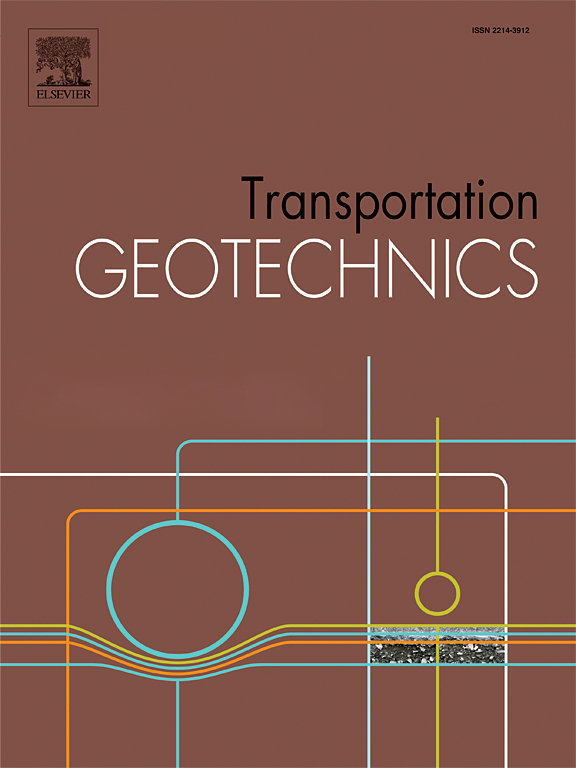An evolutionary optimized automated machine learning approach to soil unconfined compressive strength prediction for sustainable transportation infrastructure
IF 5.5
2区 工程技术
Q1 ENGINEERING, CIVIL
引用次数: 0
Abstract
Soil chemical stabilization recommendations use treated soils’ unconfined compressive strength (UCS) as the main acceptance criterion in laboratory tests. However, optimizing UCS supplemental content requires a human- and financial-intensive trial-and-error process. Data intelligence models enhance automatized scientific sampling procedures, limit laboratory testing, and provide useful information regarding stabilization adequacy without producing preliminary samples. This research proposes an evolutionary algorithm-assisted automated gradient boosting model to predict the UCS values from datasets from diverse sources. A grey wolf optimization algorithm is integrated into the gradient boosting training procedure, determining its best internal parameters and helping to select the most relevant input variables. Comparative evaluations on six recently published datasets demonstrate the efficiency of the proposed model compared to existing approaches. The optimized models produced better results than the benchmark models reported in the literature, with average coefficients of determination ranging from 0.723 to 0.928. The hybrid models with evolutionary feature selection achieved comparable performance while reducing the number of input variables between 16% and 54%.
可持续交通基础设施土壤无侧限抗压强度预测的进化优化自动机器学习方法
土壤化学稳定建议使用处理过的土壤的无侧限抗压强度(UCS)作为实验室试验的主要验收标准。然而,优化UCS补充内容需要一个人力和财力密集的试错过程。数据智能模型增强了自动化的科学采样程序,限制了实验室测试,并提供了关于稳定性充分性的有用信息,而无需产生初步样本。本研究提出了一种进化算法辅助的自动梯度增强模型来预测来自不同来源的数据集的UCS值。将灰狼优化算法集成到梯度增强训练过程中,确定其最佳内部参数并帮助选择最相关的输入变量。对六个最近发表的数据集的比较评估表明,与现有方法相比,所提出的模型是有效的。优化后的模型效果优于文献中报道的基准模型,平均决定系数在0.723 ~ 0.928之间。具有进化特征选择的混合模型在减少16%到54%的输入变量数量的同时取得了相当的性能。
本文章由计算机程序翻译,如有差异,请以英文原文为准。
求助全文
约1分钟内获得全文
求助全文
来源期刊

Transportation Geotechnics
Social Sciences-Transportation
CiteScore
8.10
自引率
11.30%
发文量
194
审稿时长
51 days
期刊介绍:
Transportation Geotechnics is a journal dedicated to publishing high-quality, theoretical, and applied papers that cover all facets of geotechnics for transportation infrastructure such as roads, highways, railways, underground railways, airfields, and waterways. The journal places a special emphasis on case studies that present original work relevant to the sustainable construction of transportation infrastructure. The scope of topics it addresses includes the geotechnical properties of geomaterials for sustainable and rational design and construction, the behavior of compacted and stabilized geomaterials, the use of geosynthetics and reinforcement in constructed layers and interlayers, ground improvement and slope stability for transportation infrastructures, compaction technology and management, maintenance technology, the impact of climate, embankments for highways and high-speed trains, transition zones, dredging, underwater geotechnics for infrastructure purposes, and the modeling of multi-layered structures and supporting ground under dynamic and repeated loads.
 求助内容:
求助内容: 应助结果提醒方式:
应助结果提醒方式:


